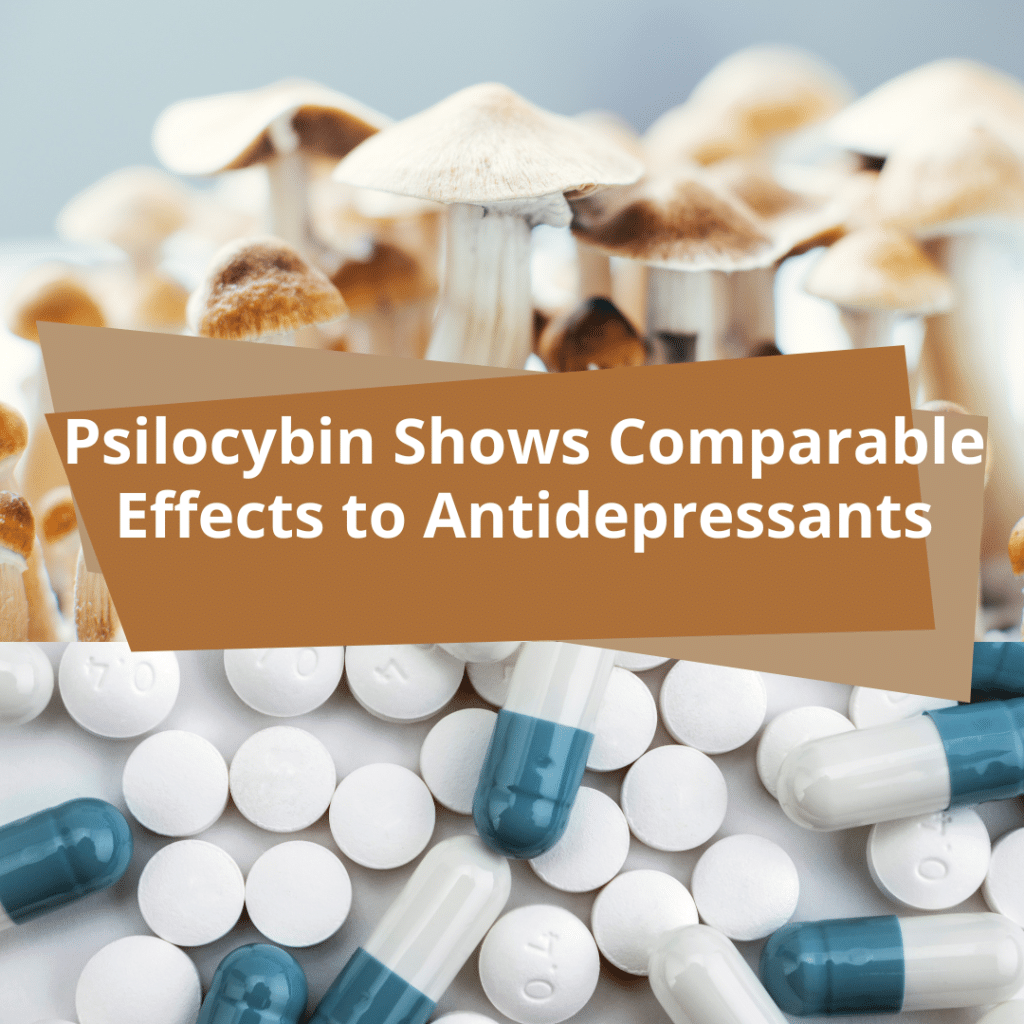A systematic review and meta-analysis published in The BMJ today suggests that high doses of psilocybin, the active compound in magic mushrooms, may have similar effects on depressive symptoms as the selective serotonin reuptake inhibitor (SSRI) drug escitalopram (sold under brand names such as Lexapro and Cipralex).
The analysis found that patients treated with high doses of psilocybin showed better responses than those receiving a placebo in antidepressant trials, though the effect size was relatively small.
The researchers caution that study design flaws may have led to an overestimation of the effectiveness of psychedelics. However, they note that high-dose psilocybin “appeared to have the potential to treat depressive symptoms.”
Psychedelics have shown promise in reducing depressive symptoms. Still, only one randomized controlled trial has directly compared a psychedelic drug (psilocybin) with an antidepressant (escitalopram) in patients with major depressive disorder. Additionally, the subjective effects of psychedelics can compromise blinding in studies, potentially leading to an overestimation of treatment effects compared to placebo. Psychedelic treatments are also typically administered with psychological support, making it difficult to isolate the direct effects of the drugs themselves.
To address these challenges, the researchers reviewed scientific databases for randomized controlled trials published up to October 12, 2023, that examined the effects of psychedelics or escitalopram in adults with acute depressive symptoms. The studies included in the review administered psychedelics (such as MDMA, LSD, psilocybin, or ayahuasca) orally, without the concurrent use of antidepressants. Escitalopram trials included those that compared at least two different oral doses (up to 20 mg/day) with placebo. Trials directly comparing psychedelic therapy with escitalopram were also included.
The review included 15 psychedelic trials with a total of 811 participants (average age 42, 54% women) and five escitalopram trials with 1,968 participants (average age 39, 63% women).
The researchers measured the effect size using the standardized mean difference (0.2-0.5 indicates a small effect, 0.5-0.8 a moderate effect, and 0.8 or higher a large effect).
They found that placebo responses were lower in psychedelic trials than in escitalopram trials. While most psychedelics outperformed placebo on the 17-item Hamilton Depression Rating Scale (HAMD-17) in these trials, only high-dose psilocybin showed a better effect than placebo in escitalopram trials on the HAMD-17 scale, with a small effect size (standardized mean difference of 0.3), comparable to that of current antidepressant drugs.
None of the interventions, including high-dose psilocybin, was associated with a higher rate of severe adverse events (such as death, hospital admission, or suicide attempts) or discontinuation compared to placebo.
The authors acknowledge several limitations in their study, including the focus on acute effects and the lack of data on the long-term impacts of psychedelics and escitalopram. They also note that the sample sizes in the psychedelic trials were small, which may have led to a slight overestimation of the effects of high-dose psilocybin compared to other treatments.
Despite these limitations, the researchers conclude that “serotonergic psychedelics, especially high-dose psilocybin, appeared to have the potential to treat depressive symptoms.” They suggest that the effect size of high-dose psilocybin is similar to that of current antidepressant drugs, albeit with a small effect size.
They add that “improved blinding methods and standardized psychotherapies could help researchers better estimate the efficacy of psychedelics for depressive symptoms and other psychiatric conditions.”
Journal: The BMJ
DOI: https://www.bmj.com/content/386/bmj-2023-078607
Method of Research: Systematic review
Subject of Research: People
Article Title: Comparative oral monotherapy of psilocybin, lysergic acid diethylamide, 3,4-methylenedioxymethamphetamine, ayahuasca, and escitalopram for depressive symptoms: systematic review and Bayesian network meta-analysis
Article Publication Date: 21-Aug-2024
